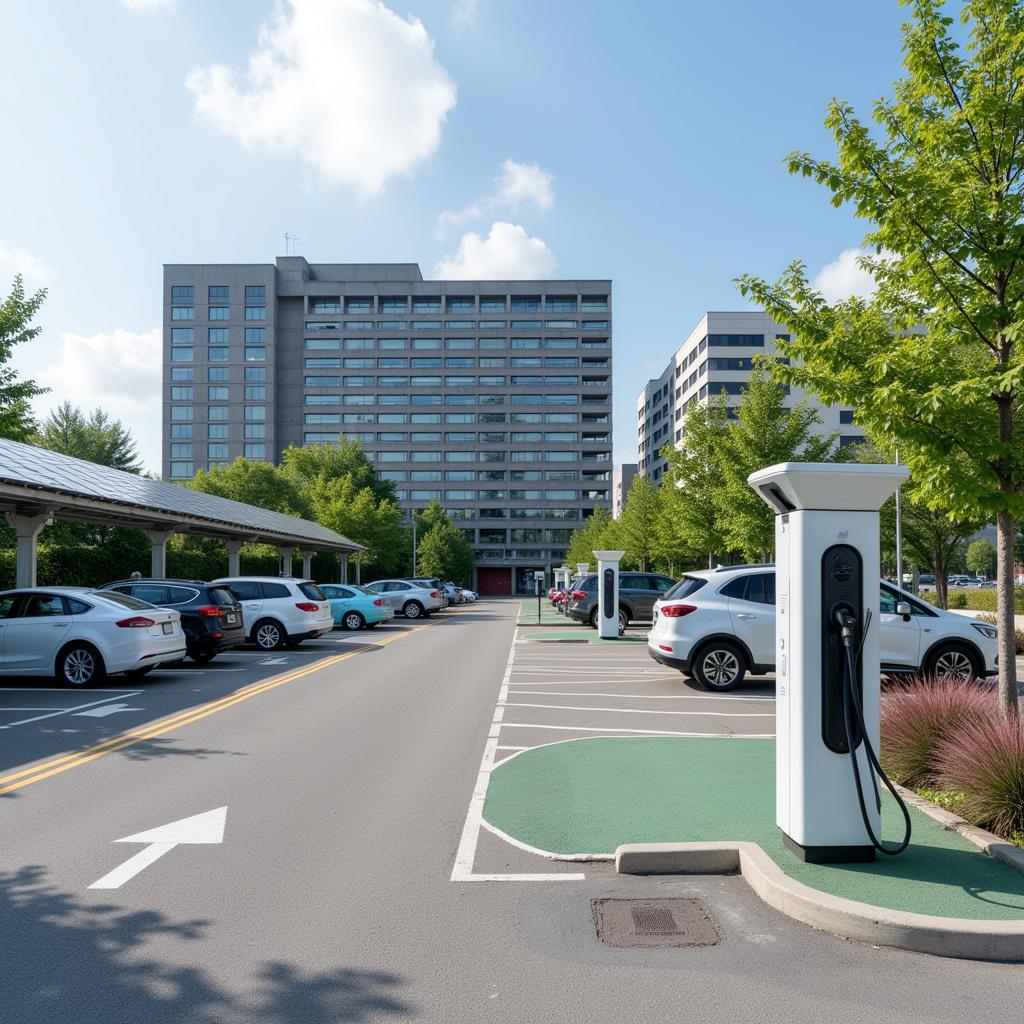The topic of electric vehicles becoming mandatory has been increasingly common in IELTS Writing Task 2 examinations, appearing in various forms since 2019. Based on analysis of past papers and current environmental trends, this theme is likely to continue appearing frequently in future tests.
Analysis of Question Types
Three common question variants on this topic have appeared:
- Government mandate for electric vehicles
- Environmental impact of transitioning to electric vehicles
- Economic implications of mandatory electric vehicle adoption
For today’s sample essays, we’ll focus on the most frequently occurring format:
Some people believe that governments should make electric vehicles mandatory by 2030 to reduce pollution. Others think this timeline is too aggressive and will cause economic problems. Discuss both views and give your opinion.
Question Analysis
This question requires:
- Discussion of both perspectives (mandatory EVs vs economic concerns)
- Clear position statement
- Supporting arguments with examples
- Balanced analysis
- Personal opinion
Sample Essay 1 (Band 8.5)
The debate over mandating electric vehicles by 2030 has gained significant traction globally, with valid arguments on both sides. While I believe this transition is necessary, I think the timeline needs careful consideration.
Proponents of mandatory electric vehicles by 2030 present compelling environmental arguments. Air pollution in major cities has reached critical levels, causing serious health issues and contributing to climate change. For instance, in cities like Delhi and Beijing, vehicle emissions account for nearly 40% of air pollution. Mandating electric vehicles would significantly reduce these emissions, potentially saving millions of lives and decreasing healthcare costs.
However, critics raise legitimate concerns about the economic implications of such an aggressive timeline. The infrastructure required for widespread electric vehicle adoption, including charging stations and grid upgrades, requires massive investment. Furthermore, many developing nations lack the financial resources to support this rapid transition. In countries like Vietnam and Indonesia, where many families rely on affordable traditional vehicles for their livelihoods, an abrupt switch could cause severe economic hardship.
In my view, while transitioning to electric vehicles is crucial for environmental sustainability, a more flexible approach would be more effective. Rather than a strict 2030 mandate, governments should implement a graduated transition plan. This could include progressive targets, incentives for early adopters, and support for affected industries and workers. For example, Singapore’s approach of providing tax incentives while gradually phasing out combustion engines has proven more successful and socially acceptable.
Therefore, while the goal of widespread electric vehicle adoption is admirable, the implementation timeline should consider each country’s economic capabilities and social circumstances to ensure a sustainable and equitable transition.

Sample Essay 2 (Band 6.5)
These days, many people talk about making electric cars mandatory by 2030. This is a complex issue with both good and bad points.
Some people think making electric cars mandatory is a good idea. First, it will help reduce pollution in cities. Many big cities have bad air quality because of car exhaust. Second, electric cars are better for fighting climate change. They don’t produce CO2 like normal cars. For example, in China, many cities are already encouraging people to buy electric cars to reduce pollution.
But other people worry about the problems this could cause. Electric cars are still very expensive for many people. Not everyone can afford to buy a new car by 2030. Also, many countries don’t have enough charging stations. In countries like India and Vietnam, people need more time to build this infrastructure. It will cost a lot of money.
I think making electric cars mandatory by 2030 is too fast. Governments should take more time to make this change. They should first help make electric cars cheaper and build more charging stations. Maybe 2040 would be a better target date.
In conclusion, while electric cars are important for the environment, we need a slower timeline to avoid economic problems.
Score Analysis
Band 8.5 Essay:
- Task Response: Fully addresses all parts with clear position
- Coherence: Logical organization with clear progression
- Lexical Resource: Wide range of vocabulary with natural and sophisticated use
- Grammar: Complex structures used accurately
Band 6.5 Essay:
- Task Response: Addresses main points but less developed
- Coherence: Basic organization but some inconsistency
- Lexical Resource: Adequate vocabulary but limited range
- Grammar: Mix of simple and complex structures with some errors
Key Vocabulary
- mandate (v.) /ˈmændeɪt/ – to officially require something
- infrastructure (n.) /ˈɪnfrəstrʌktʃər/ – basic physical systems of a country
- transition (n.) /trænˈzɪʃən/ – the process of changing from one state to another
- sustainable (adj.) /səˈsteɪnəbəl/ – able to continue over time without damaging the environment
- implementation (n.) /ˌɪmplɪmenˈteɪʃən/ – the process of putting a plan into action
- incentive (n.) /ɪnˈsentɪv/ – something that encourages a particular action
- equitable (adj.) /ˈekwɪtəbəl/ – fair and impartial
- graduated (adj.) /ˈɡrædʒueɪtɪd/ – happening in stages
Remember to practice writing your own essay on this topic and share it in the comments section for feedback. Similar topics might include mandatory solar panels on buildings, zero-emission zones in cities, or government subsidies for green transportation.